21 Best Girl Groups of All Time

- Oops!Something went wrong.Please try again later.
- Oops!Something went wrong.Please try again later.
- Oops!Something went wrong.Please try again later.
Getty Images. Treatment by Liz Coulbourn

Introducing Teen Vogue's Girl Group Week, a celebration of the best and most exciting girl groups of the past and present, the ones who make hit after hit and show us time and time again that friendship, girlhood, and fun choreography are timeless.
For nearly a century, the best girl groups have been putting lyrics to the complexities of how teens and young adults feel and move through the world. As it turns out, times may change, but these emotions stay the same — which is perhaps why so many girl group classics continue to resonate so strongly today.
Oldies from the likes of the Andrews Sisters and the Shirelles capture the butterflies of first love, while girl group hits of the ‘90s steep themselves in sex positivity and girl power mantras. When in need of comfort and a dash of self love, there’s no shortage of girl groups to switch on for a lift, or to restore your hope in the power of female friendship above all else.
Beyond our personal playlists, there’s so much more owed to girl groups. They’ve given us iconic styles to mimic with besties and slang that lasts a generation. (If you’ve ever called someone a “scrub” or hummed “zig-a-zig-ah” to yourself, you know just what we mean.) The music industry itself wouldn’t be the same without them. Motown’s girl groups opened doors for Black artists; K-pop’s have extended the industry’s global reach; a handful of other U.S. and U.K. acts have launched solo stars into the pop stratosphere.
In reality, the best girl groups aren’t the ones that simply take the temperature of a pop culture moment. They’re the ones who define that moment, stamping their mark on it for years to come. Below, you’ll find the top 21 girl groups who did just that.
The Supremes
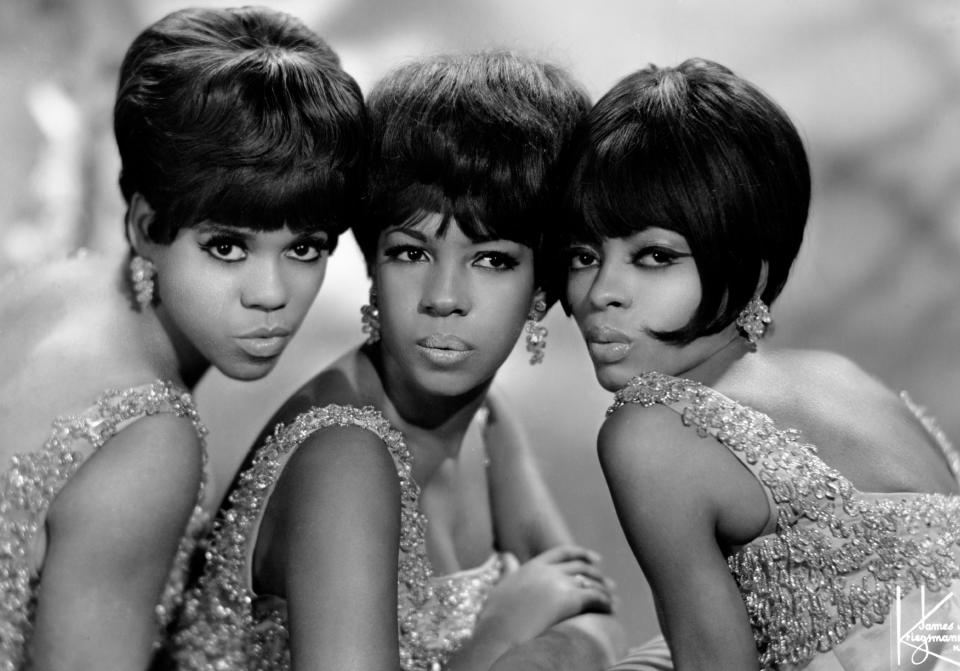
Supremes Portrait Session
Photo by James Kriegsmann/Michael Ochs Archives/Getty ImagesIf modern girl groups have one act to thank, it’s The Supremes. The legendary trio, consisting of Florence Ballard, Mary Wilson, and Diana Ross, were a premiere Motown act and the label’s greatest commercial success, helping to usher in the golden age of early ‘60s girl groups. With 12 Billboard no. 1’s, the most of any female group, the Supremes is the definition of timeless.
Destiny’s Child
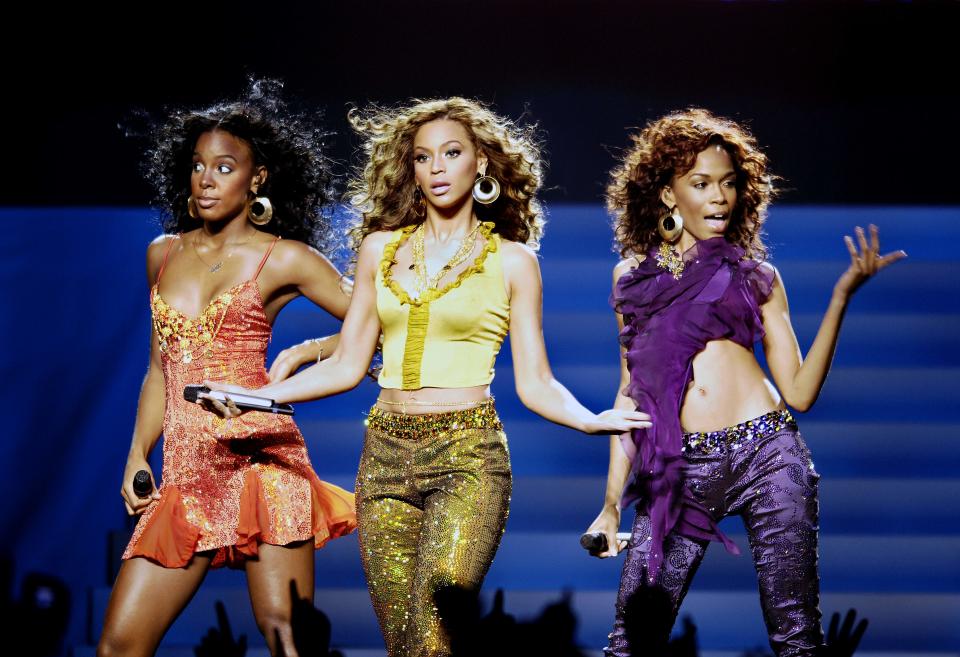
Photo of DESTINY'S CHILD
Martin PhilbeyBeyoncé Knowles, Kelly Rowland, and Michelle Williams became Destiny’s Child in 1996, and the rest is, well, destiny. Known for chart-topping radio hits like “Say My Name” and “Survivor,” the girl group is also responsible for bringing one of the most ascendent stars of our time, Queen B herself, into the spotlight. Since going their separate ways in 2006, the now truly Independent Women have since teamed up for the 2013 Super Bowl halftime show and again for 2018’s historic Beychella.
Spice Girls
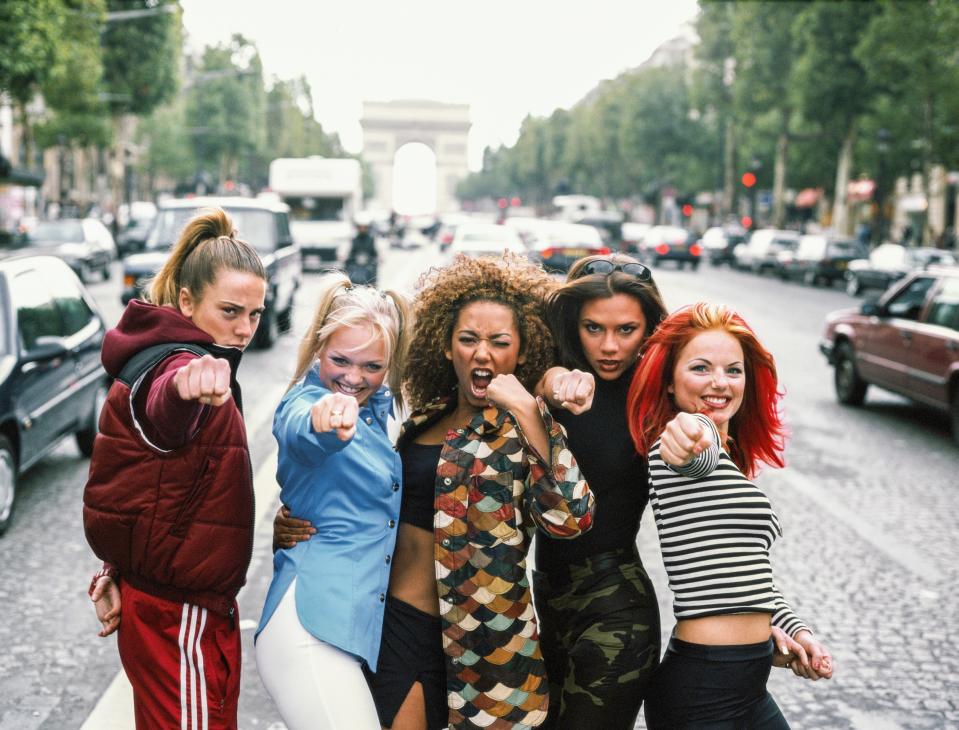
Spice In Paris
Tim Roney/Getty ImagesIn the ‘90s, the Spice Girls wasn’t just a girl group. Together, Mel B, Melanie C, Emma Bunton, Geri Halliwell, and Victoria Beckham (aka Scary, Sporty, Baby, Ginger, and Posh Spice) formed a global phenomenon. Debut single “Wannabe” — which hit no. 1 in nearly 40 countries — made them role models to a legion of young girls by celebrating individuality and affirming friendship never ends. Yet all good things must end, and the group eventually split in 2001, though they remain the best selling girl group of all time.
Little Mix
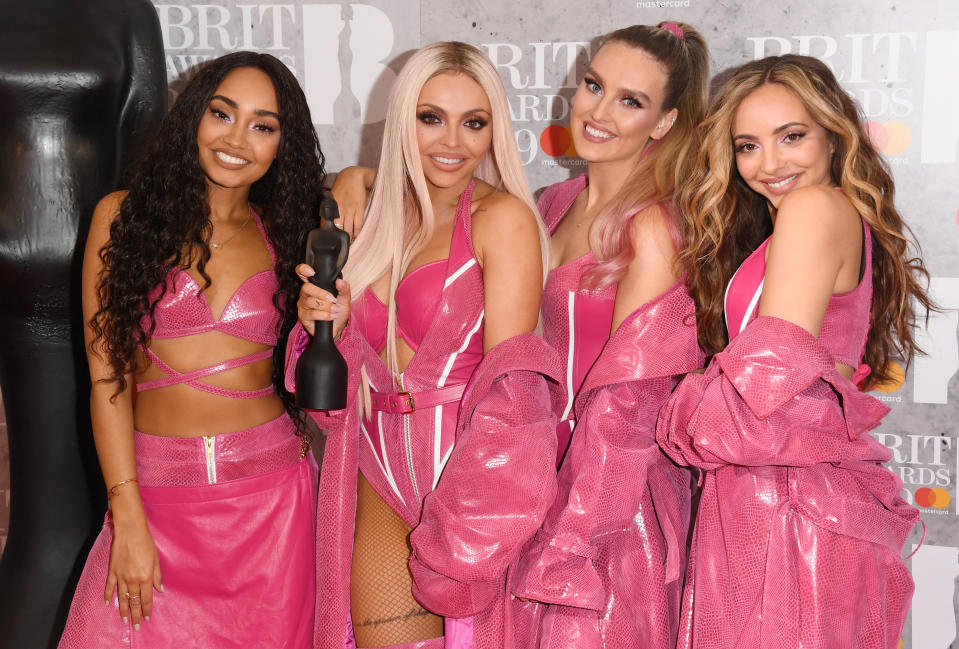
The BRIT Awards 2019 - Winners Room
Stuart C. Wilson/Getty ImagesAs the millennium turned, boy bands dominated while girl groups fell slightly out of favor. That is, of course, until Little Mix triumphed on The X Factor in 2011. Whether recounting frisky flings or just plain gassing themselves up, Little Mix (now Jade Thirlwall, Perrie Edwards, and Leigh-Anne Pinnock, though they’re currently pursuing solo careers), brought the genre to a new generation, claiming the crown as the girl group with the longest-reigning no. 1 album since the Spice Girls.
Girls Aloud
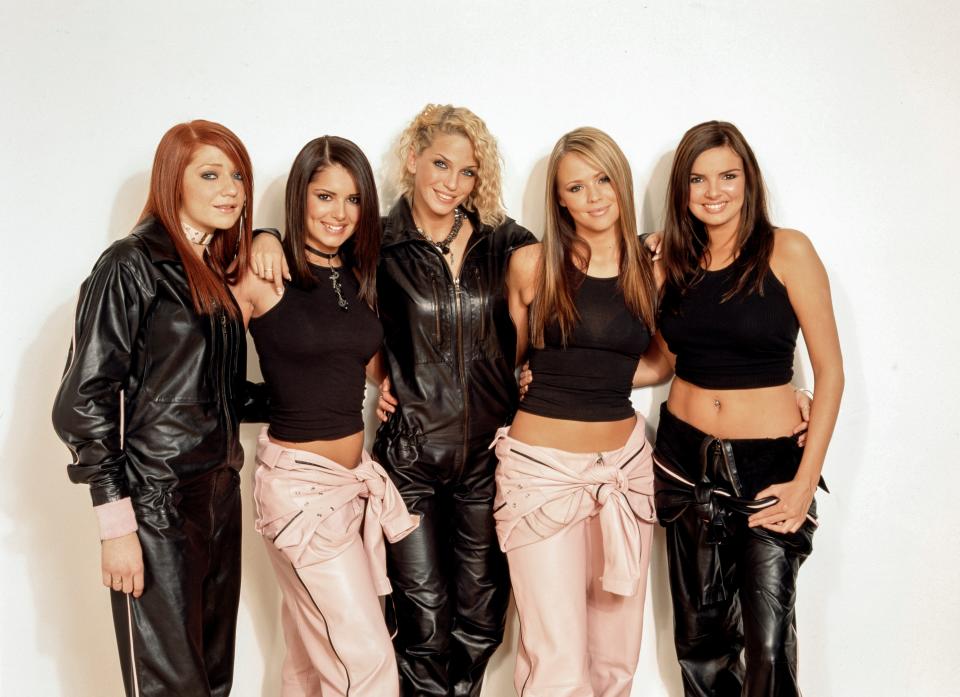
Girls Aloud
Tim Roney/Getty ImagesBefore Little Mix, the rowdy Girls Aloud were the first majorly successful group formed on a talent show. In 2002, Cheryl Tweedy, Nadine Coyle, Sarah Harding, Nicola Roberts, and Kimberley Walsh won British TV show Popstars: The Rivals, and became fixtures of the British charts for quite some time. Following the tragic death of Harding in 2021, upcoming The Girls Aloud Show will honor her life and the band’s legacy.
Wonder Girls
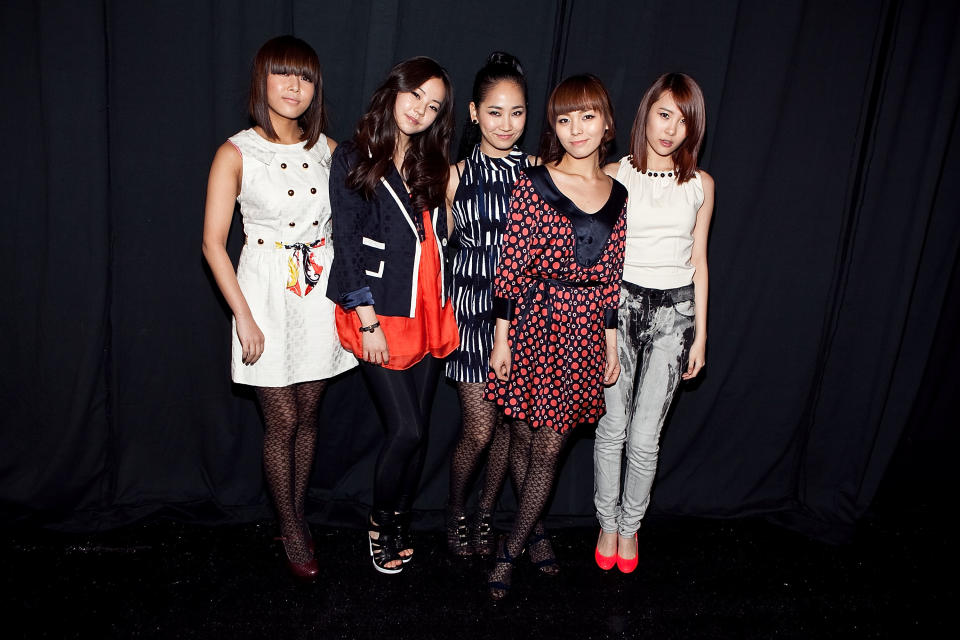
Mercedes-Benz Fashion Week Fall 2010 - Milly By Michelle Smith - Front Ro
Paul Morigi/WireImageWonder Girls was one of K-pop’s first global trailblazers, opening for the Jonas Brothers on tour in the late aughts. The “Retro Queens” also became the first Korean group to enter the Billboard Hot 100 in 2007 with the Motown-inspired “Nobody,” which saw Yeeun, Sunye, Sunmi, Sohee, and Yubin pay tribute to classic groups from the American label’s heyday.
TWICE
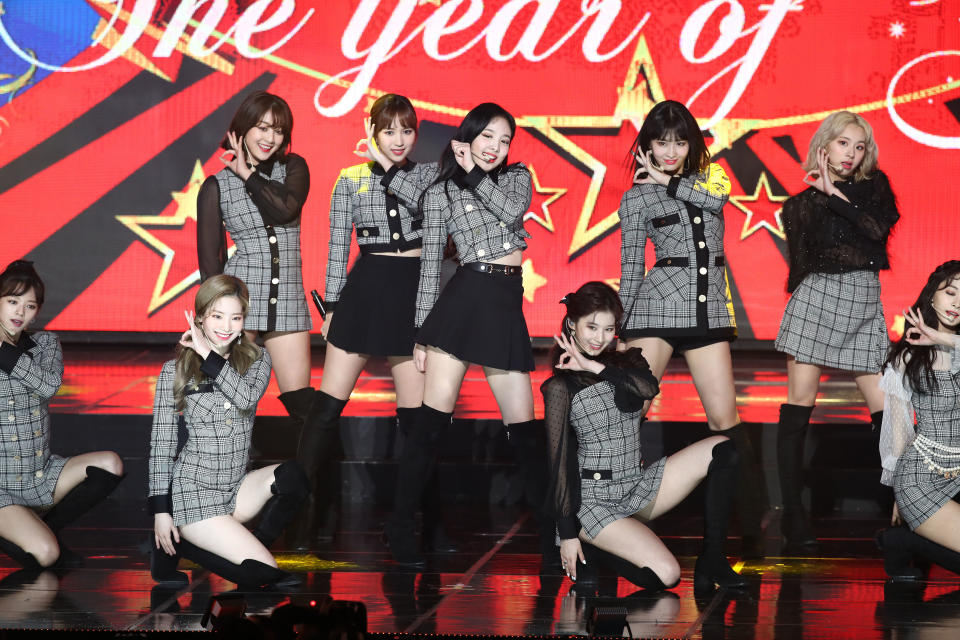
The 8th Gaon Chart K-Pop Awards
Chung Sung-Jun/Getty ImagesDebuting in 2015 with “Like OOH-AHH,” K-pop sweethearts TWICE stole our hearts from the beginning. The nine-piece, comprising Nayeon, Jeongyeon, Momo, Sana, Jihyo, Mina, Dahyun, Chaeyoung, and Tzuyu, have since matured their confectionary bops into ones laced with sophistication — still, they’ve never lost that one spark that made us fall in love with them in the first place.
Salt-N-Pepa
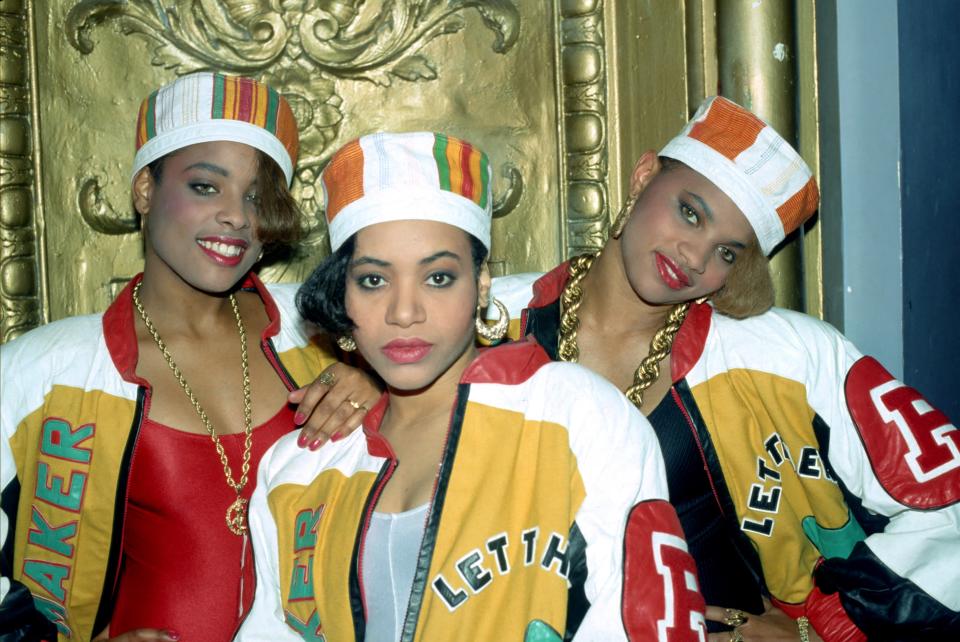
Salt-N-Pepa Portrait
Michael Ochs Archives/Getty ImagesSalt-N-Pepa’s impact on hip-hop — and girl groups — is still evident decades later. Making a name for themselves in the male-centric rap scene of the late ‘80s and early ‘90s, Salt, Pepa, and DJ Spinderella boldly defied taboos by tapping into their sexuality and feminine power on smash hits like “Shoop” and “Whatta Man.” Having sold 15 million records worldwide, they are still an all-time popular rap act.
TLC
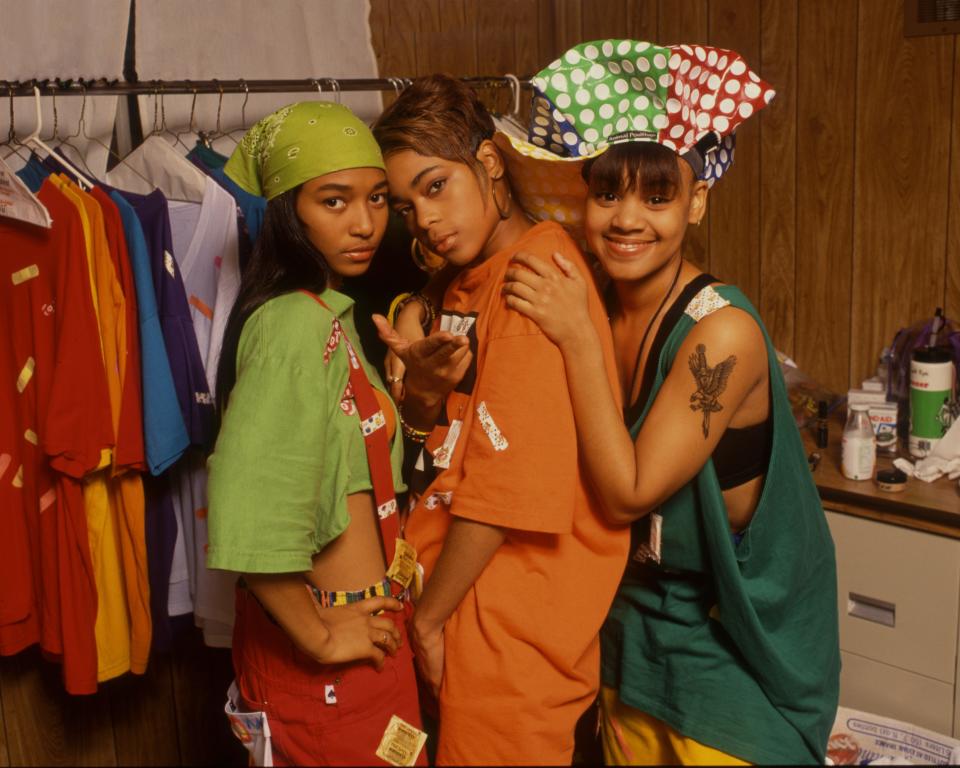
TLC
Tim Roney/Getty ImagesComing out of Atlanta in 1990, TLC infused rap and R&B with a groundbreakingly forward expression of desire. What’s more, T-Boz, Left Eye, and Chilli brought attention to safe sex by safety-pinning condoms to their representative baggy ‘fits (“Waterfalls” is also said to be about HIV). TLC’s blockbuster album CrazySexyCool remains one of two by a female group to be certified diamond.
The Pointer Sisters
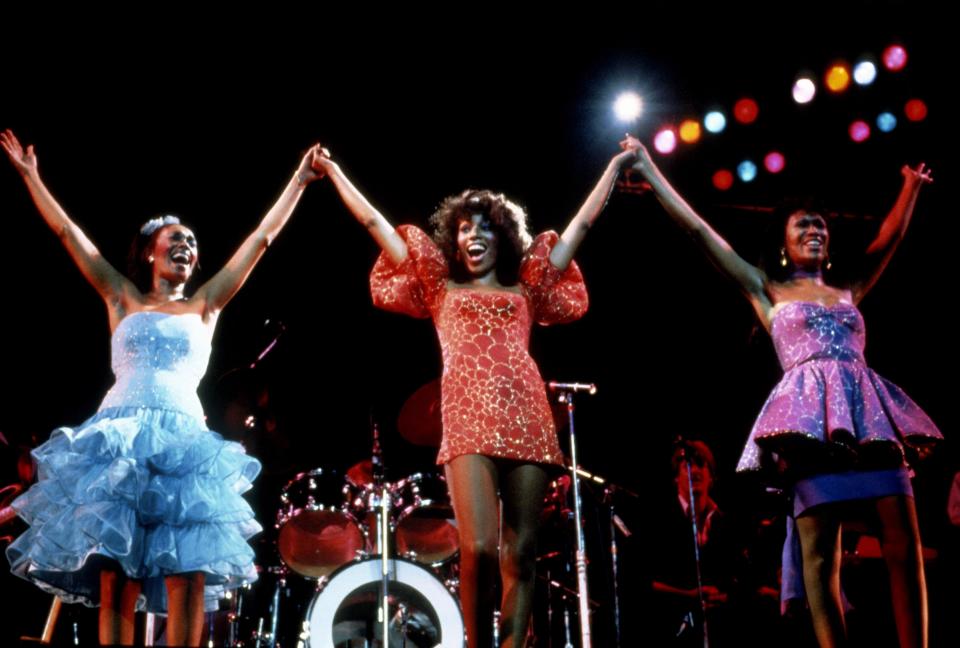
The Pointer Sisters in concert...
Robin Platzer/IMAGES/Getty ImagesThough formed in 1970, the Pointer Sisters really found mainstream success in the ‘80s with the synth-pop sugar-rushes “Jump (For My Love)” and “I’m So Excited,” which you can easily imagine blasting from a Walkman headset. In that decade, Oakland-born siblings June, Ruth, and Anita scored 13 top 20 hits, and won two Grammys on top of the one they’d previously been awarded.
2NE1
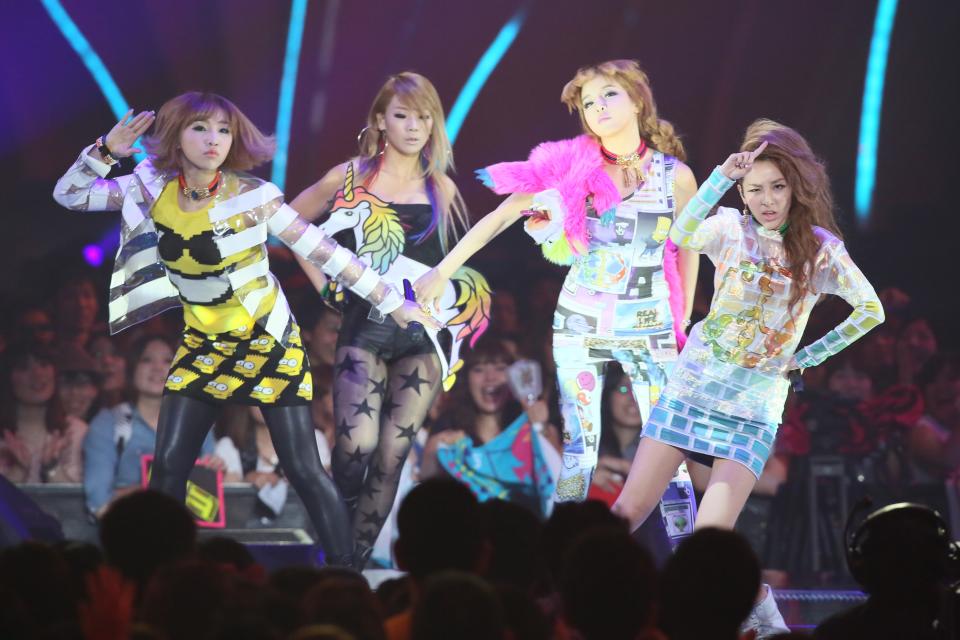
MTV Video Music Japan 2012 - Show
Ken Ishii/Getty ImagesIn one of K-pop’s most iconic opening lines, 2NE1 declare themselves the best, and it’s hard to argue the point. Bom, CL, Dara, and Minzy captured the West by being the very essence of bad b*tch energy, breaking records and becoming the first K-pop girl group to embark on a world tour. Though 2ne1 disbanded in 2016, solo star CL brought out the other three members during her Coachella set in 2022 for a surprise reunion.
BLACKPINK
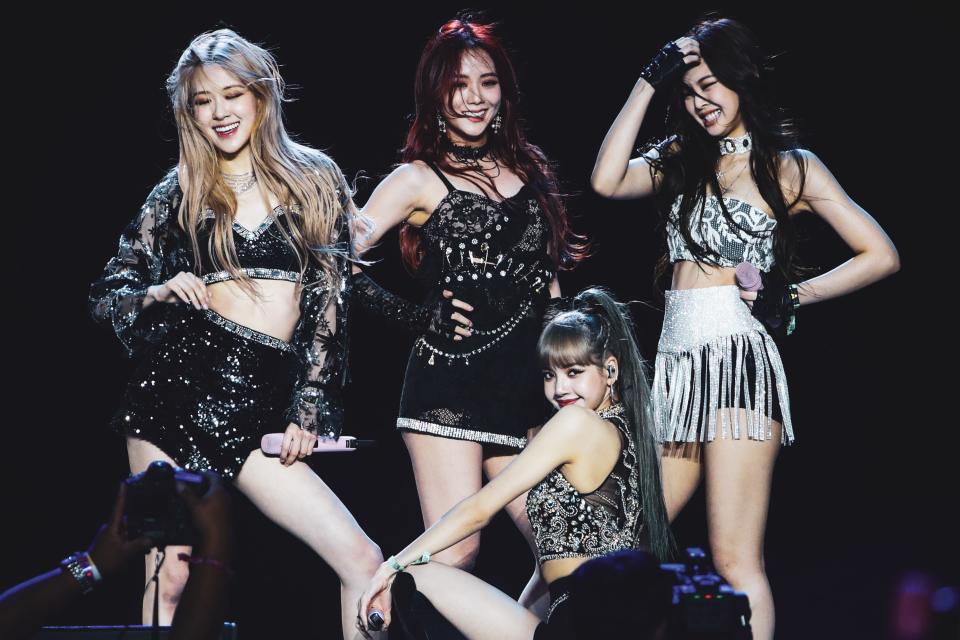
2019 Coachella Valley Music And Arts Festival - Weekend 2 - Day 1
Rich Fury/Getty ImagesMade in the image of their “girl crush” predecessors, Blackpink took the fierce and confident bangers to new global heights. In addition to the music video for “DDU-DU DDU-DU” racking up over two billion views to date (the most for a K-pop group), Jisoo, Jennie, Rosé, and Lisa have also become fashion muses and business moguls in their own right, proving that their talk of self-empowerment is anything but lip service.
The Shirelles
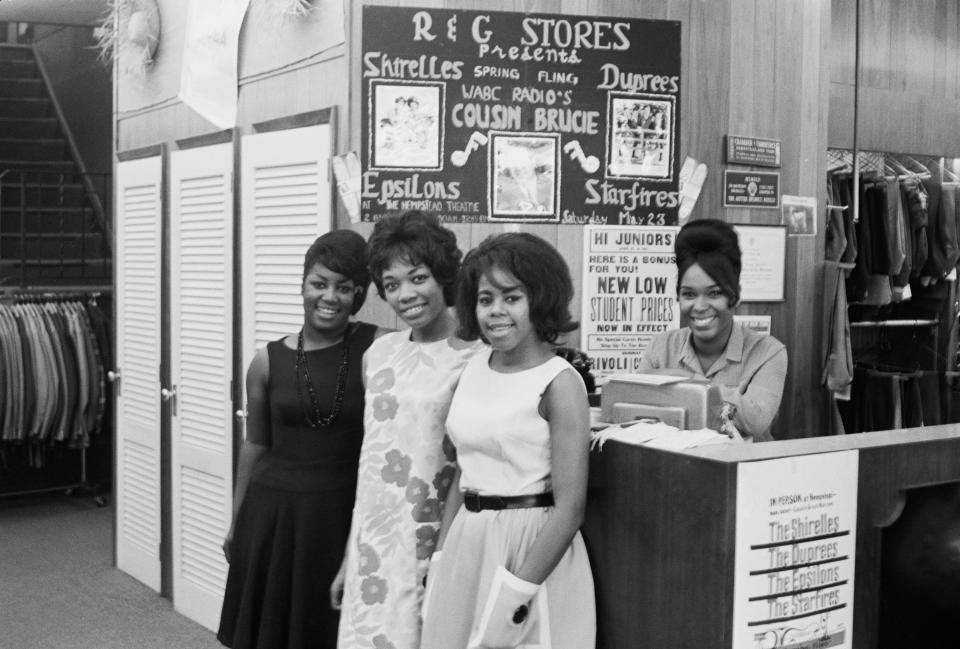
The Shirelles
Don Paulsen/Michael Ochs Archives/Getty ImagesAdored as good-girl ingénues, high school friends Addie Harris, Shirley Owens, Beverly Lee, and Doris Coley (collectively known as The Shirelles) won over a multi-racial audience before Motown really ruled the scene. In addition, the girl group was the first one to go no. 1 on the Billboard Hot 100 with “Will You Still Love Me Tomorrow” in 1961, making them a template for the acts that would follow.
The Ronettes
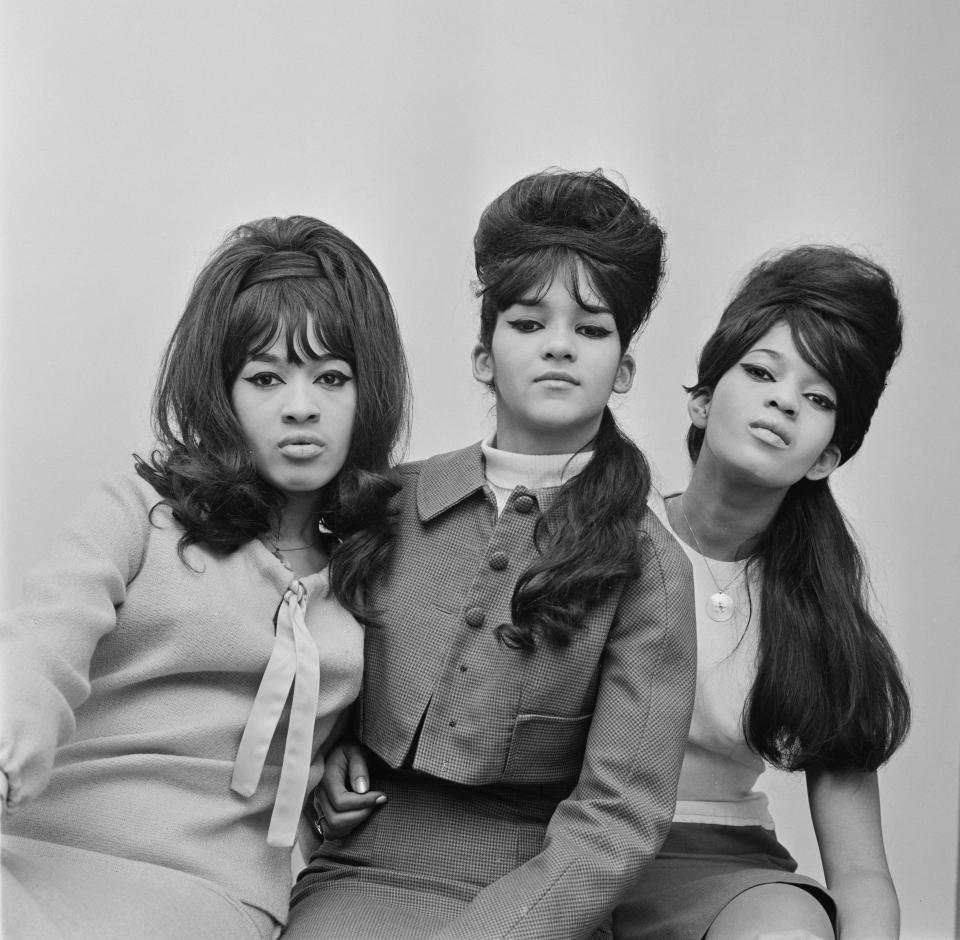
The Ronettes
Evening Standard/Hulton Archive/Getty ImagesComposed of sisters Ronnie and Estelle and their cousin Nedra, the Ronettes were responsible for one of the 1960s’ enduring classics: “Be My Baby.” Lead vocalist Ronnie’s husky vocals — completed by the girls’ eyeliner flicks and half-bouffant updos — birthed generations of soulful rockers, including Amy Winehouse and Lana Del Rey; they were the only girl group to tour with the Beatles, to boot.
All Saints
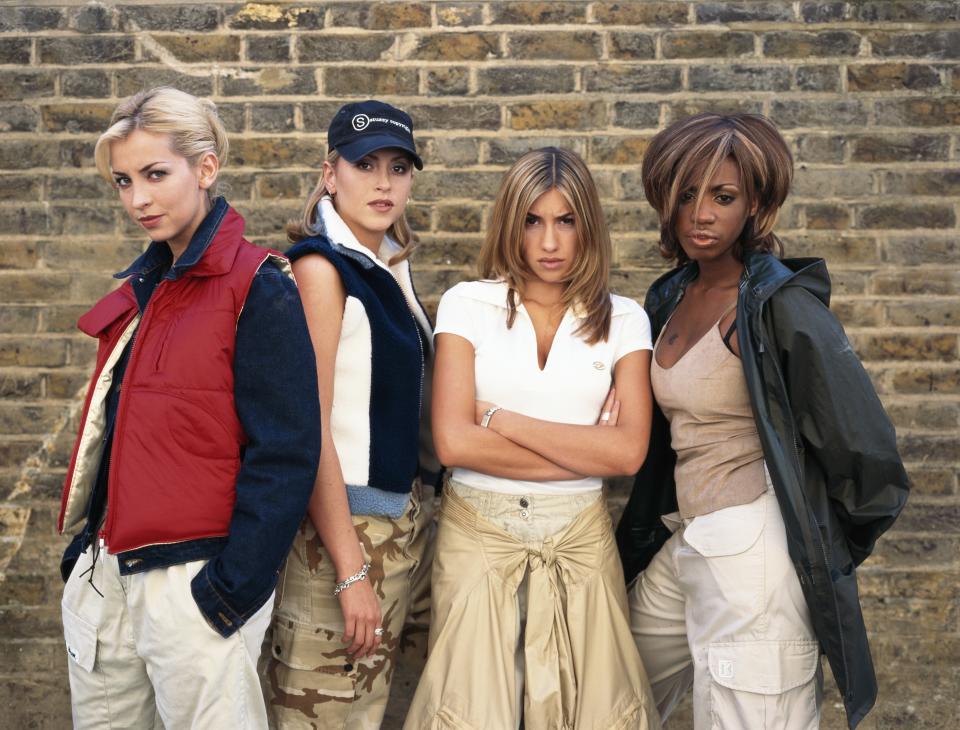
All Saints
Tim Roney/Getty ImagesShooting to popularity in the same era as the Spice Girls, All Saints was like their edgier counterpart, uniformed in cargo pants. Members Natalie Appleton, Nicole Appleton, Melanie Blatt, Shaznay Lewis, and Simone Rainford split in 2001 and have reunited a couple of times.
Fifth Harmony
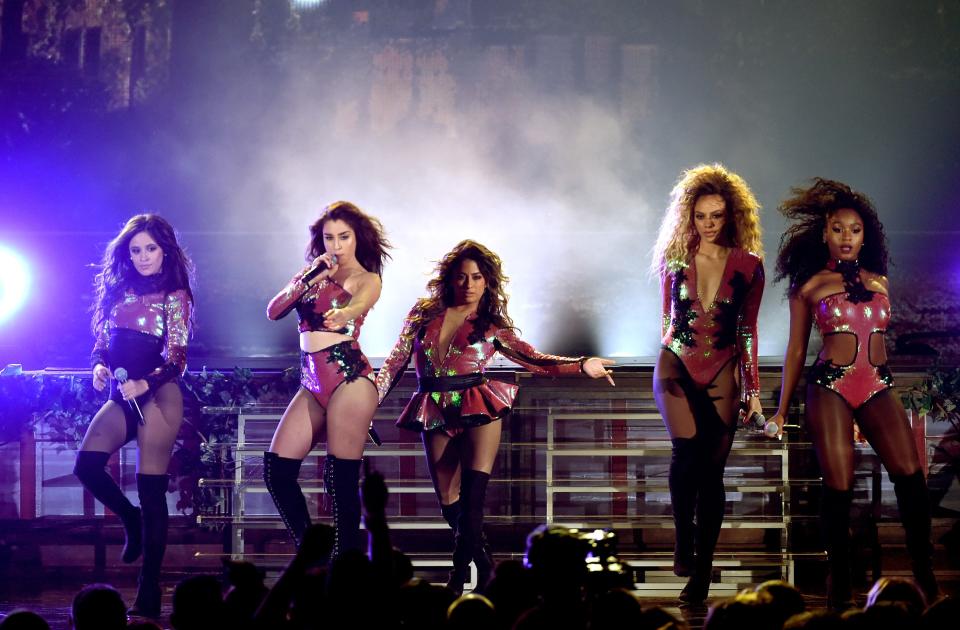
2016 Billboard Music Awards - Show
Kevin Winter/Getty ImagesNot exactly best known for their (*ahem*) harmony, Ally Brooke, Normani, Dinah Jane, and Lauren Jauregui went on indefinite hiatus soon after Camila Cabello departed the group in 2016. While together, though, Fifth Harmony set records as one of the top selling U.S. girl groups of the 21st century.
Red Velvet
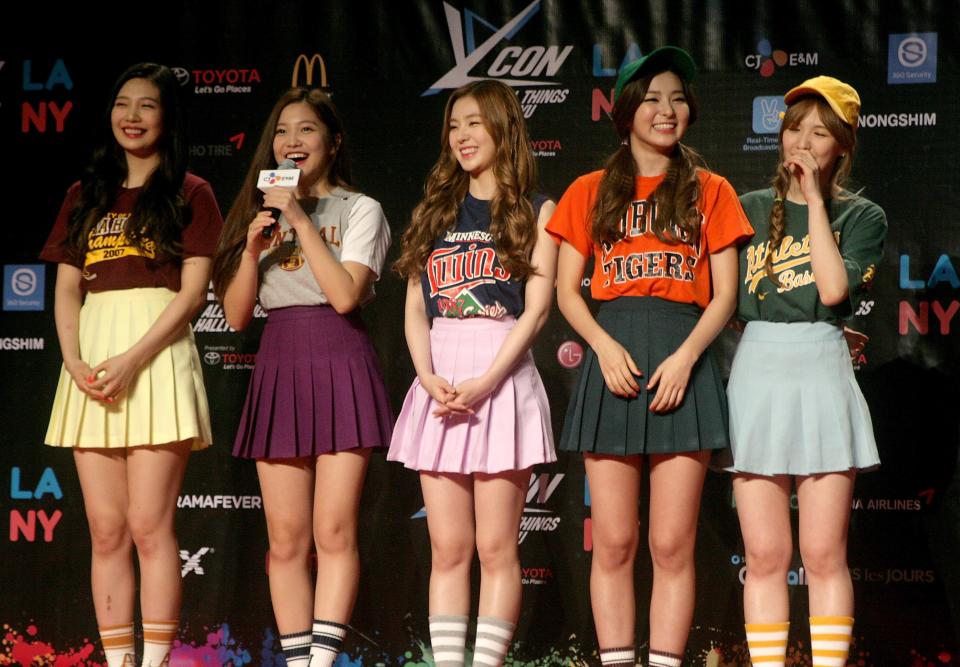
KCON 2015 USA - Los Angeles
Matthew Simmons/Getty ImagesRed Velvet’s music can be bright pop or silky smooth R&B — either way, when you tune in, you’re in store for girl group excellence. Irene, Seulgi, Wendy, and Joy debuted under legendary K-pop company SM Entertainment in 2014 (final member Yeri joined in 2015), and have solidified their well-deserved place on this list with every imaginative music video released since.
The Pussycat Dolls
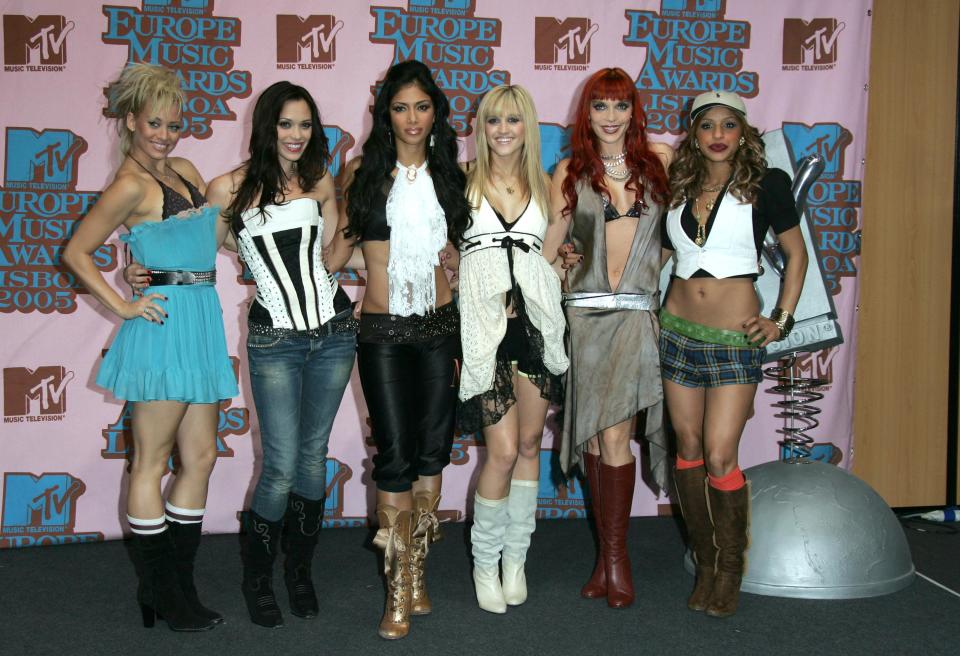
2005 MTV European Music Awards Lisbon - Press Room
Toni Anne Barson Archive/WireImageStarting as a burlesque troupe, the Pussycat Dolls became a pop group in 2003. Led by Nicole Scherzinger, whose starring role caused tension, the group released lasting hits that we can still sing every word to like “Don’t Cha” and “When I Grow Up” before disbanding in 2010.
En Vogue
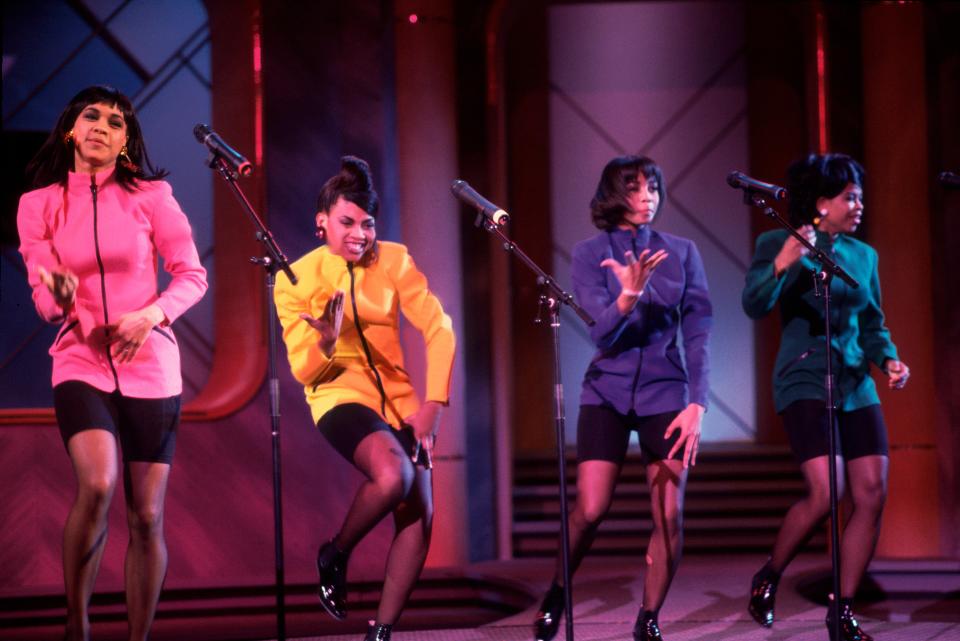
En Vogue On The Oprah Winfrey Show
Paul Natkin/Getty ImagesThe idea behind En Vogue’s formation was simple; to avoid having a breakout star, every member had to be lead singer material. And, boy, could they sing. In the nineties, these Funky Divas — Terry Ellis, Dawn Robinson, Cindy Herron, and Maxine Jones, though members came and went — harmonized over some of the most recognizable songs of the decade, including “Free Your Mind.”
Sugababes
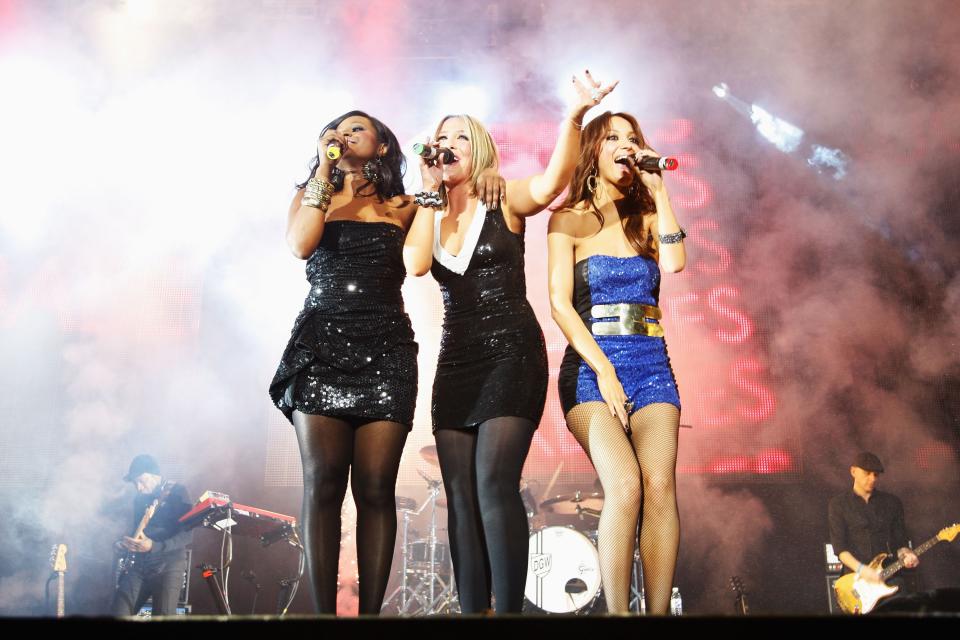
Capital FM Jingle Bell Ball - Show - Exclusive
Jon FurnissFormed in 1998, UK girl group Sugababes, too, has had a revolving door. At one point, all three of the founding members — Mutya Buena, Keisha Buchanan, and Siobhán Donaghy — were out. But don’t worry, the OG trio is now back together and stronger than ever.
Girls Generation
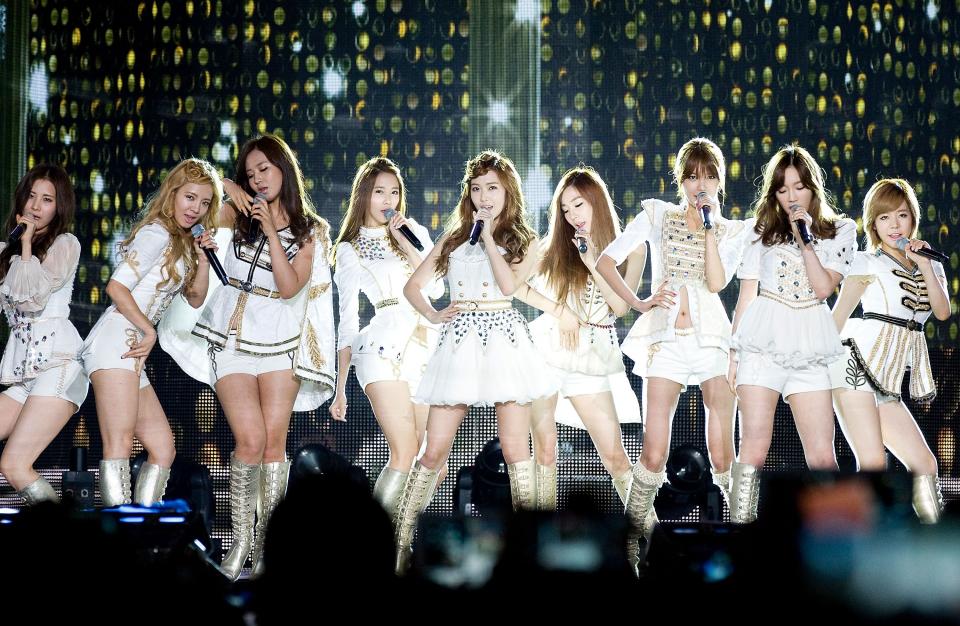
2012 KBS Korea-China Music Festival
Han Myung-Gu/WireImageFrom the experimental “I Got a Boy” to genre-defining hit “Gee,” you’ll be hard pressed to find a K-pop girl group with a more robust legacy than Girls Generation. Rising to fame in 2009, Taeyeon, Sunny, Tiffany, Hyoyeon, Yuri, Sooyoung, Yoona, Seohyun, and former member Jessica quickly became one of Asia’s biggest acts. In 2017, the group entered a hiatus, but five years later, Girls Generation reunited to bless our ears with one more round of pop perfection.
Originally Appeared on Teen Vogue
Want more great Culture stories from Teen Vogue? Check these out:
A New Generation of Pretty Little Liars Takes on the Horrors of Being a Teenage Girl
Underneath Chappell Roan’s Hannah Montana Wig? A Pop Star for the Ages
Donald Glover’s Swarm Is Another Piece of Fandom Media That Dehumanizes Black Women
On Velma, Mindy Kaling, and Whether Brown Girls Can Ever Like Ourselves on TV
Gaten Matarazzo Talks Spoilers, Dustin Henderson, and Growing Up on Stranger Things
How K-pop Stars Are Leading Mental Health Conversations for AAPI People and Beyond
Meet the Collective of Philly TikTokers Making You Shake Your Hips
The Midnight Club Star Ruth Codd Isn’t Defined By Her Disability


